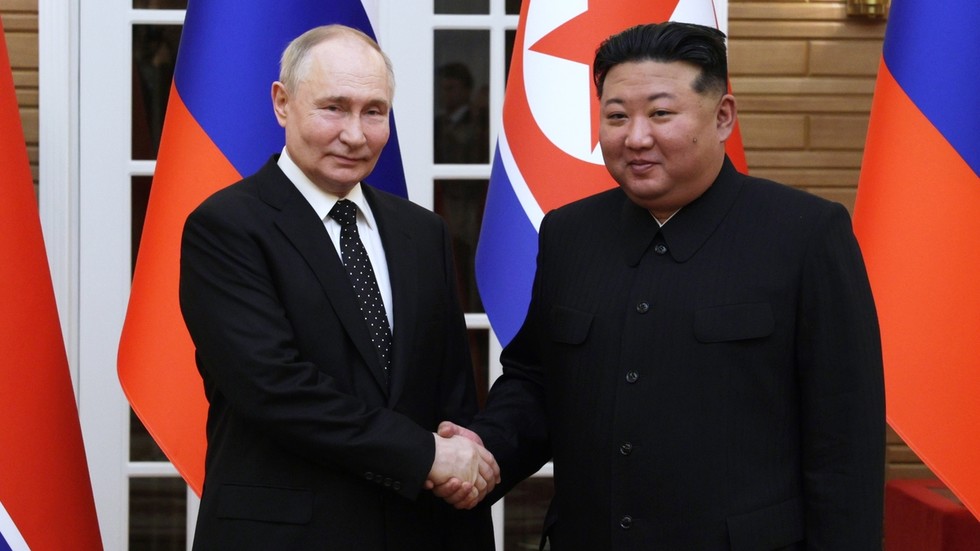The increasing military collaboration between Russia and North Korea has prompted a coordinated response from the United States, the European Union (EU), and South Korea. This collaboration reportedly includes the deployment of North Korean troops to the front lines in Ukraine, which has raised alarms among Western nations about regional stability and security. In response to these developments, the US has imposed a new round of sanctions targeting North Korean officials, banks, and Russian oil shipping companies. South Korea has similarly blacklisted 11 individuals and 15 entities from both countries accused of engaging in “illegal military cooperation.” The European Union, in its 15th sanctions package against Russia, has included key North Korean military figures such as Defense Minister No Kwang Chol and Deputy Chief of the General Staff Kim Yong Bok.
The joint condemnation of the military cooperation by the G7, along with nations such as South Korea, Australia, and New Zealand, reflects the gravity of the situation. The G7 nations have voiced concerns over North Korea’s direct support for Russian military operations, stating that this development presents a serious risk to security in both Europe and the Indo-Pacific region. Reports in Western media indicate that North Korea may have sent upwards of 10,000 troops to assist Russian forces, with speculation about potential numbers reaching as high as 100,000. Neither Russia nor North Korea has confirmed these troop deployments, although the Pentagon has acknowledged the possibility based on intelligence assessments.
Russian President Vladimir Putin has characterized the relationship with North Korea as a defense partnership solidified by a treaty earlier in the year, which commits both countries to mutual assistance in times of conflict. This treaty could potentially lead to more extensive military cooperation, as it outlines a framework for defense collaboration in the event of an attack on either nation. The assurances made by both Putin and North Korean Ambassador to the UN, Kim Song, emphasize their intent to uphold their respective commitments under this treaty, which they assert aligns with international norms.
The unfolding situation highlights not only the geopolitical tensions arising from the conflict in Ukraine but also the evolving alliances between nations that traditionally have not cooperated closely. The incorporation of North Korea into Russia’s military framework could significantly impact the dynamics of the conflict with Ukraine and beyond. Analysts warn that this partnership could usher in a new era of military alliances that challenge established global power structures, particularly if it facilitates the flow of military resources and personnel.
As North Korea’s role in the conflict deepens, the response from the international community will likely intensify. The sanctions imposed on North Korea and Russia serve as a critical tool for signaling disapproval of their military alliance and as a deterrent against further escalations in their cooperation. The economic ramifications of these sanctions could create strains within both countries, leading to potential shifts in strategies or tactics in ongoing military operations.
In conclusion, the increased military cooperation between Russia and North Korea has become a focal point of international concern and has elicited a robust response from Western powers. With the specter of escalating military involvement and the potential for wider conflict, the strategic implications of this alliance could redefine security dynamics in the region. The commitment to sanctions and diplomatic pressure will likely continue as these nations navigate their military and political partnerships, paralleling the necessity for ongoing dialogue among the global community to mitigate further escalation.

